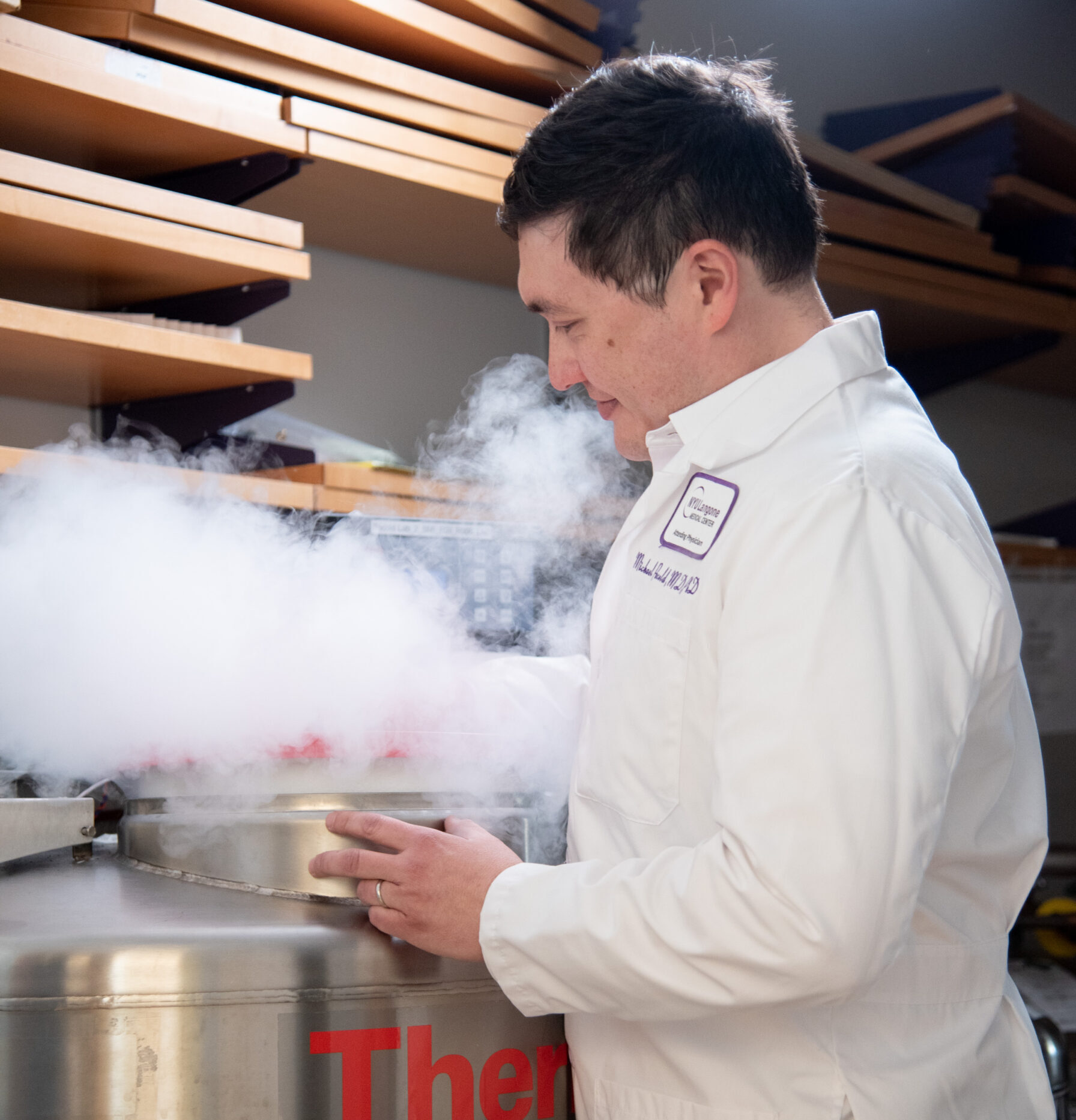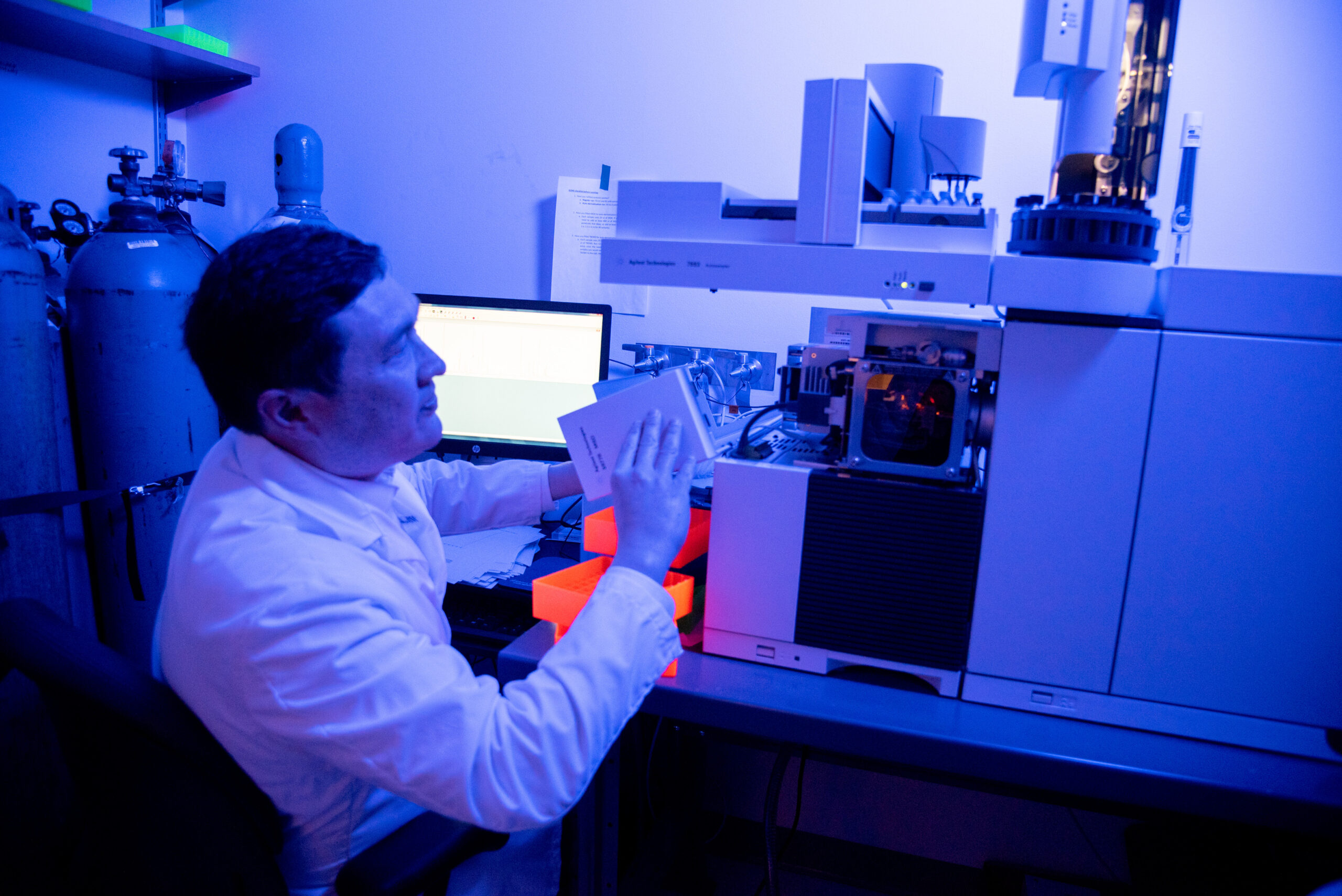Michael Pacold, MD, PhD ‹ Back To 2022 Winners
2022 Winners
Assistant Professor
Radiation Oncology
New York University School of Medicine
Vision
Our vision is to open up the field of gaseous biology in cancer and other diseases. Oxygen and other gases are essential to human life. We have known for decades that oxygen affects the growth of tumor cells, and can be limiting in the milieu in which tumors grow, but we still do not know exactly how cells use oxygen. We have developed techniques to trace oxygen and other biologically relevant gases into their targets in tumor cells and identify these targets in a systematic manner. We will use these methods to identify new fundamental biological processes essential for the growth of tumor cells.
Michael Pacold, MD, PhD is a physician-scientist at the NYU Grossman School of Medicine and NYU Langone Health. He was born in Richmond, Virginia, and grew up in the Chicago area. He obtained undergraduate degrees in chemistry and biology at Indiana University – Bloomington, a PhD from the University of Cambridge for research at the Medical Research Council Laboratory for Molecular Biology, and a MD from Harvard Medical School. After an internship in Internal Medicine at the Massachusetts General Hospital and residency in Radiation Oncology at the Harvard Radiation Oncology Program, he did a postdoctoral fellowship at the Whitehead Institute at MIT and the Dana-Farber Cancer Institute. At NYU, he directs a lab that develops novel metabolomics tools to study the growth of tumors in nutrient and oxygen-limiting environments. He also maintains a clinical practice in CNS Radiation Oncology.
Discovering and Targeting Gaseous Biology of Tumors
All cancers require oxygen to grow and survive. Surprisingly, the amount of oxygen in cancers is low – as much as 200-fold lower than the air we breathe. Cancers with low oxygen are aggressive and very difficult to treat. Two examples of these cancers are pancreatic cancer and a brain cancer called glioblastoma multiforme. How do these aggressive cancers grow when they have so little oxygen?
We have developed methods to track how cancer cells use oxygen. We found that cancers use oxygen to make Coenzyme Q10 (CoQ10), a molecule important for making energy that cells use to grow. Millions of people take CoQ10 as a supplement, but surprisingly little is known about how our bodies actually make CoQ10. Even less is known about how cancers use CoQ10 to grow. We found that pancreatic cancers must make CoQ10 to grow, and that when pancreatic cancers cannot make CoQ10, they stop growing.
“The Pershing Square Sohn Prize will allow us to study the role of oxygen and other biologically relevant gases in cancers. These gases influence the growth and behavior of tumor cells and other cells in the tumor environment. We have developed methods to trace these gases into their targets in cells. We will use these methods to discover oxygen-driven processes that enable tumor growth and target these processes to develop new treatments for cancers.”
We will identify potential drugs that prevent cancer cells from making CoQ10 and test if these drugs slow the growth of pancreatic cancers. We also will use our oxygen tracking methods to find out how glioblastoma cells use oxygen, and use these discoveries to figure out how to slow or stop glioblastoma growth.
Our goal is to use oxygen tracking to discover how aggressive cancers efficiently use the low amount of oxygen that they have. This work will reveal new ways to treat patients with devastating tumors such as pancreatic cancer and glioblastoma.
“Innovation is the humility to realize that the world out there is more beautiful and elegant than you could possibly imagine, and the wisdom to discern true signals amidst noise.”

